Recursion: Difference between revisions
No edit summary |
|||
| Line 1: | Line 1: | ||
'''Recursion''' is an informal game term. "Recurring" a card is playing a card you'd typically think of as disposable (like an [[Event|event]] or [[minion]]) many times, usually because of an effect that puts that card into your hand or into play from the [[Discard]] pile, or a card that stacks other cards on itself in lieu of sending them to the discard pile. | |||
For example, {{C|Moria}} [[Shadow Alignment|Shadow]] decks recur {{Card|Goblin Scimitar}} many times, to draw cards and generate extra [[Twilight]] with (multiple copes of) {{Card|Goblin Armory}}. You can only have four copies of Goblin Scimitar, but they replay them many more times than that, by playing and recurring {{Card|Goblin Scavengers}}. They recur the Scavengers by using {{Card|They Are Coming}}, {{Card|Host of Thousands}}, and {{Card|Goblin Swarms}}. | For example, {{C|Moria}} [[Shadow Alignment|Shadow]] decks recur {{Card|Goblin Scimitar}} many times, to draw cards and generate extra [[Twilight]] with (multiple copes of) {{Card|Goblin Armory}}. You can only have four copies of Goblin Scimitar, but they replay them many more times than that, by playing and recurring {{Card|Goblin Scavengers}}. They recur the Scavengers by using {{Card|They Are Coming}}, {{Card|Host of Thousands}}, and {{Card|Goblin Swarms}}. | ||
Another common example of recurring cards is the {{C|Dwarven}} strategy using {{Card|Preparations}}. {{Card|Slaked Thirsts}} can be played when stacked on a [[Condition|condition]], and {{Card|Sindri, Dwarven Lord}} will let you play and replay any {{CultureIcon|Dwarven}} [[Skirmish Phase|skirmish]] [[Event|event]] you want. | Another common example of recurring cards is the {{C|Dwarven}} strategy using {{Card|Preparations}}. {{Card|Slaked Thirsts}} can be played when stacked on a [[Condition|condition]], and {{Card|Sindri, Dwarven Lord}} will let you play and replay any {{CultureIcon|Dwarven}} [[Skirmish Phase|skirmish]] [[Event|event]] you want. | ||
Revision as of 06:14, 25 December 2021
Recursion is an informal game term. "Recurring" a card is playing a card you'd typically think of as disposable (like an event or minion) many times, usually because of an effect that puts that card into your hand or into play from the Discard pile, or a card that stacks other cards on itself in lieu of sending them to the discard pile.
For example, Moria Shadow decks recur Goblin Scimitar (1C180)
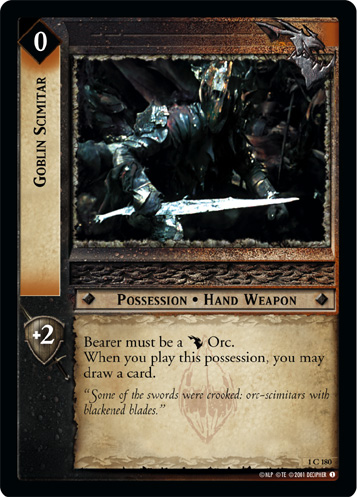 many times, to draw cards and generate extra Twilight with (multiple copes of) Goblin Armory (1R173)
many times, to draw cards and generate extra Twilight with (multiple copes of) Goblin Armory (1R173)
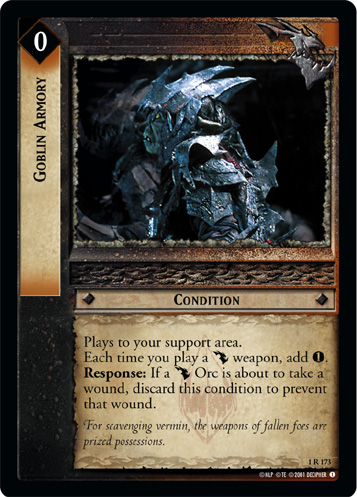 . You can only have four copies of Goblin Scimitar, but they replay them many more times than that, by playing and recurring Goblin Scavengers (1C179)
. You can only have four copies of Goblin Scimitar, but they replay them many more times than that, by playing and recurring Goblin Scavengers (1C179)
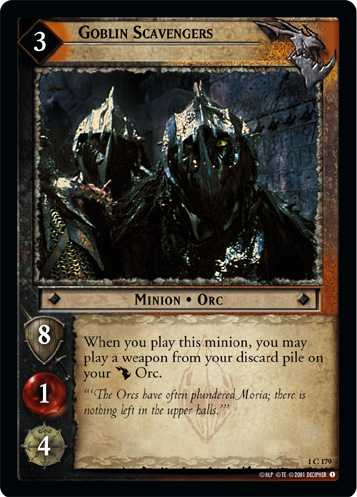 . They recur the Scavengers by using They Are Coming (1C196)
. They recur the Scavengers by using They Are Coming (1C196)
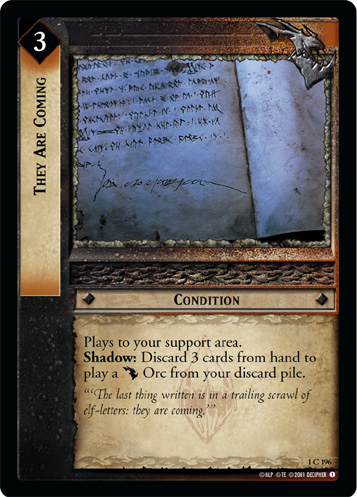 , Host of Thousands (1C187)
, Host of Thousands (1C187)
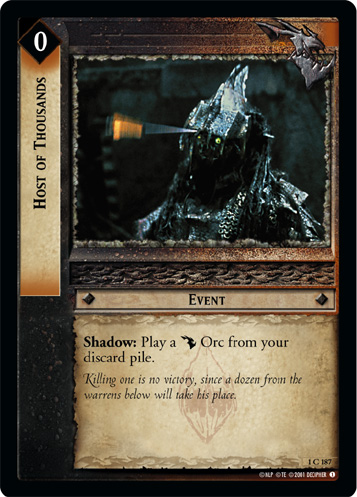 , and Goblin Swarms (1R183)
, and Goblin Swarms (1R183)
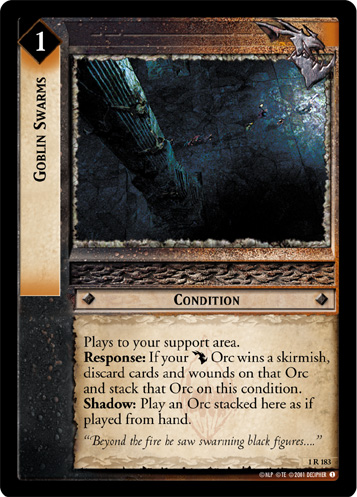 .
.
Another common example of recurring cards is the Dwarven strategy using Preparations (7R12)
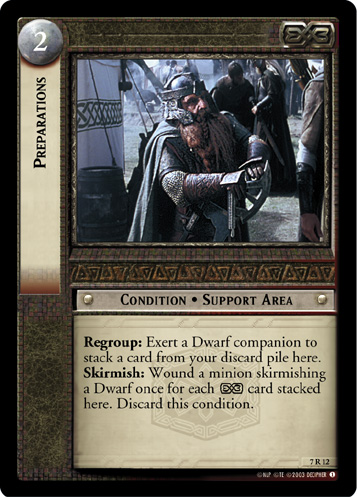 . Slaked Thirsts (7U14)
. Slaked Thirsts (7U14)
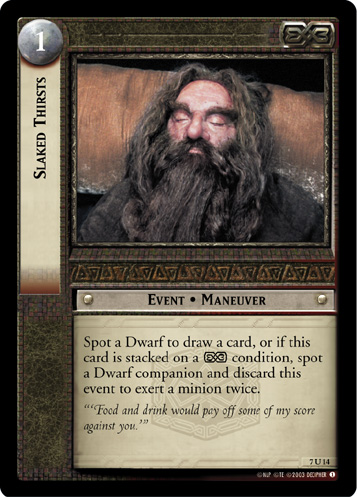 can be played when stacked on a condition, and Sindri, Dwarven Lord (9R10)
can be played when stacked on a condition, and Sindri, Dwarven Lord (9R10)
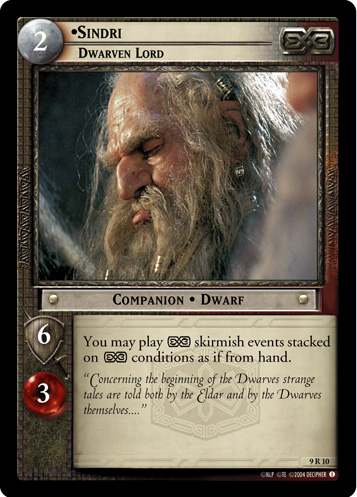 will let you play and replay any
will let you play and replay any skirmish event you want.